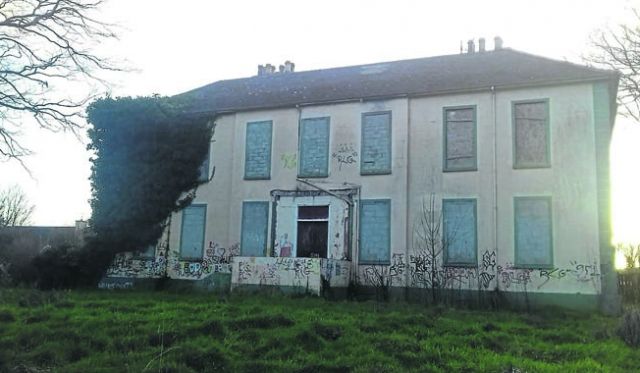Between 1982 and 1998, the years covered by the report, 325 women entered the Castle, most being referred by health boards or the agency CURA.
Some arrived with older children, 64 in the period covered. The women came from all parts of Ireland including Northern Ireland and are described in a report as a diverse group.
They included women with professional qualifications, students, some from a Traveller background, some with intellectual disabilities, and in the later years, some immigrant women, a few of whom “may have been illegal immigrants”.
At any one time there were only a small number of women resident in The Castle and the average length of stay before the birth of their babies was 62 days while the average stay afterwards was 27 days.
The women gave birth to their babies in maternity hospitals in either Letterkenny or Derry with some newborns returning to The Castle with their mothers while others went directly to foster parents or to St Mura’s Orphanage in Fahan.
Records show that five babies died in the period 1984-1998 and that each baby died soon after birth in the hospitals in which they were born.
Detailed diaries from June 1984 gave an insight into daily life at The Castle and the personalities and circumstances of the women who stayed there.
The report said that in its view, the staff, who were local women, “showed a great deal of empathy and, possibly more importantly, common sense”.
The report refers to staff bringing women and children on outings, for example, to the beach and being very attentive to their needs, particularly as they approached their due date. “It would appear that the staff went over and above the call of duty.”
A senior social worker with the NWHB told the commission that “the objective of The Castle was to provide a space for women with unplanned pregnancies who did not want to stay at home and who needed to think about the future….it would not be institutional; the bedrooms were big enough to accommodate a mother and more than one child”.
Records for the period January 1987 to October 1990 show that women were expected to pay £24 a week for themselves, £5 for a week for a baby and £7 for an older child.
The report notes that almost all of the women had an income with some even travelling by bus to Letterkenny or Derry for work while others were entitled to Maternity Benefit or other social welfare payments.
In terms of attitudes towards the women, the report states that the majority of families were aware of the women’s presence in the hostel and their families and the fathers of their children were able to visit freely and take them on outings.
Some women, however, were “completely shunned by their families” the report states.
The Commission says that there was a great deal of evidence that “the women agonised over the adoption decision and a number of women changed their minds a number of times”.
The attitude of the woman’s parents was a “very, and probably the most, significant factor in the decision about whether to keep the baby or place for adoption … there is evidence of considerable pressure being exercised by families and sometimes by the fathers of the children”.
A connection with The Castle continued for some women after they left, with their diaries indicating that they stayed in touch with staff or returned to stay for a period of time, a night or weekend.
The report says that staff continued to be concerned about the women following their departure while some former residents frequently phoned staff for advice and sent Christmas cards.










